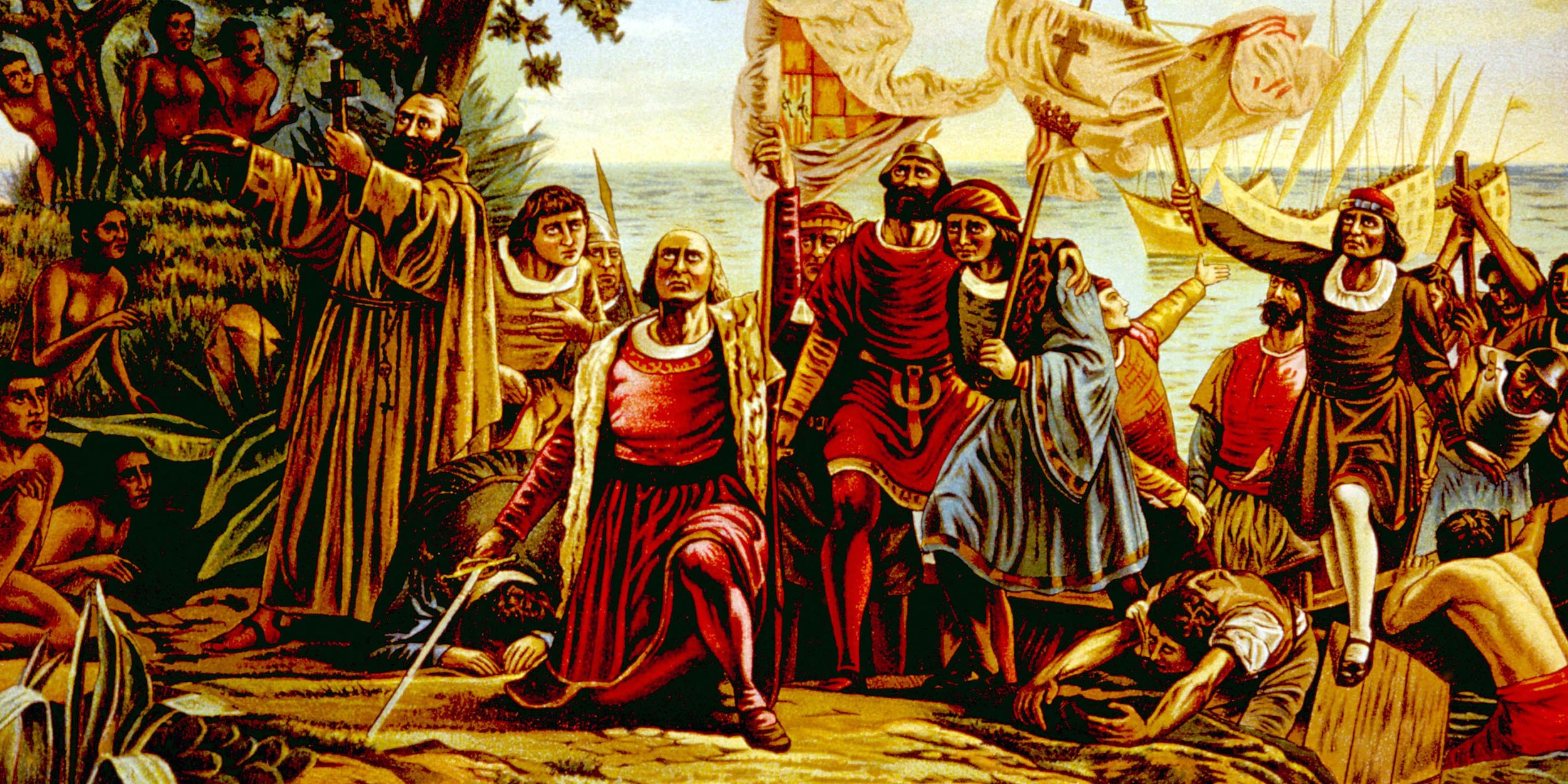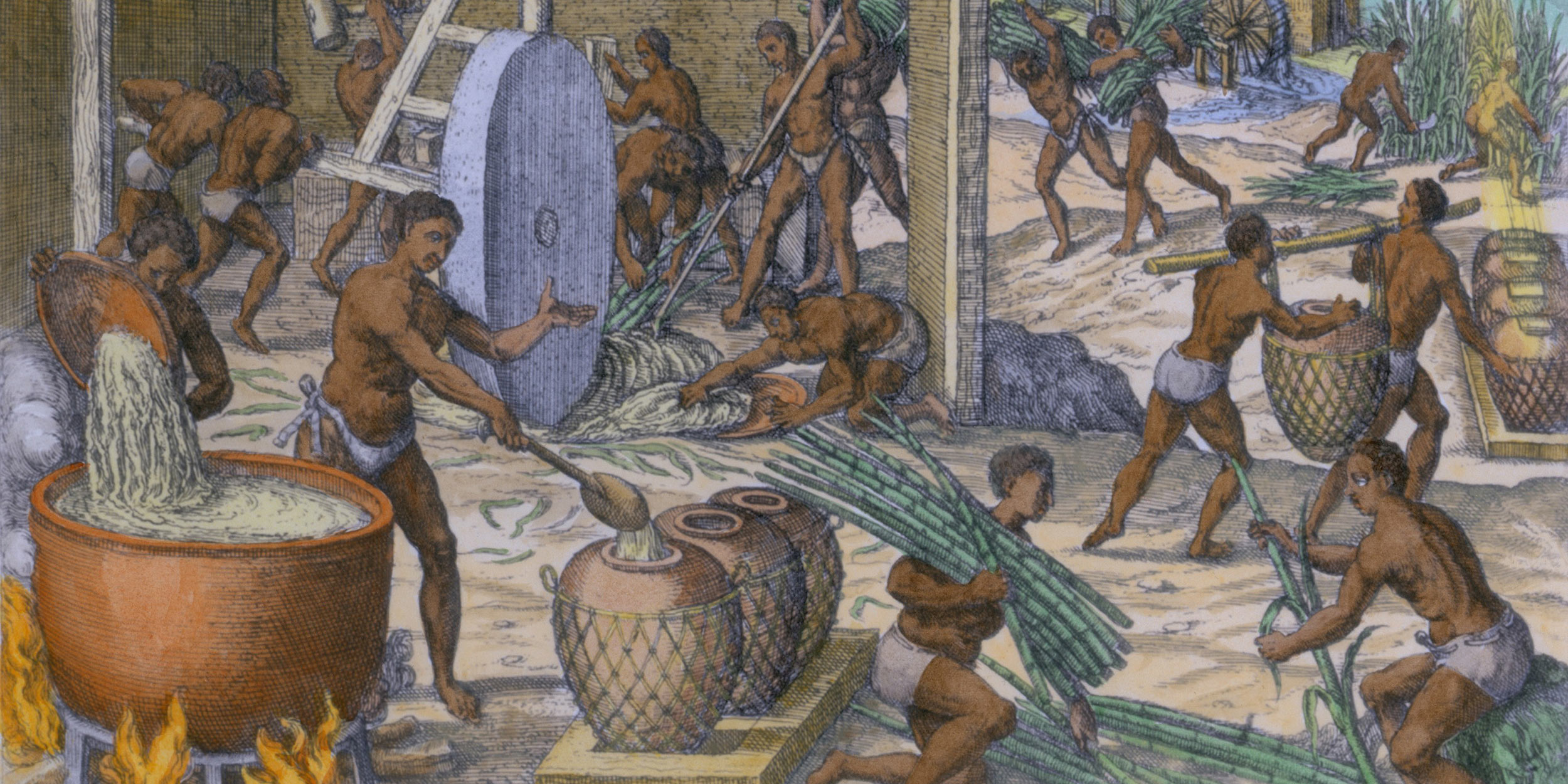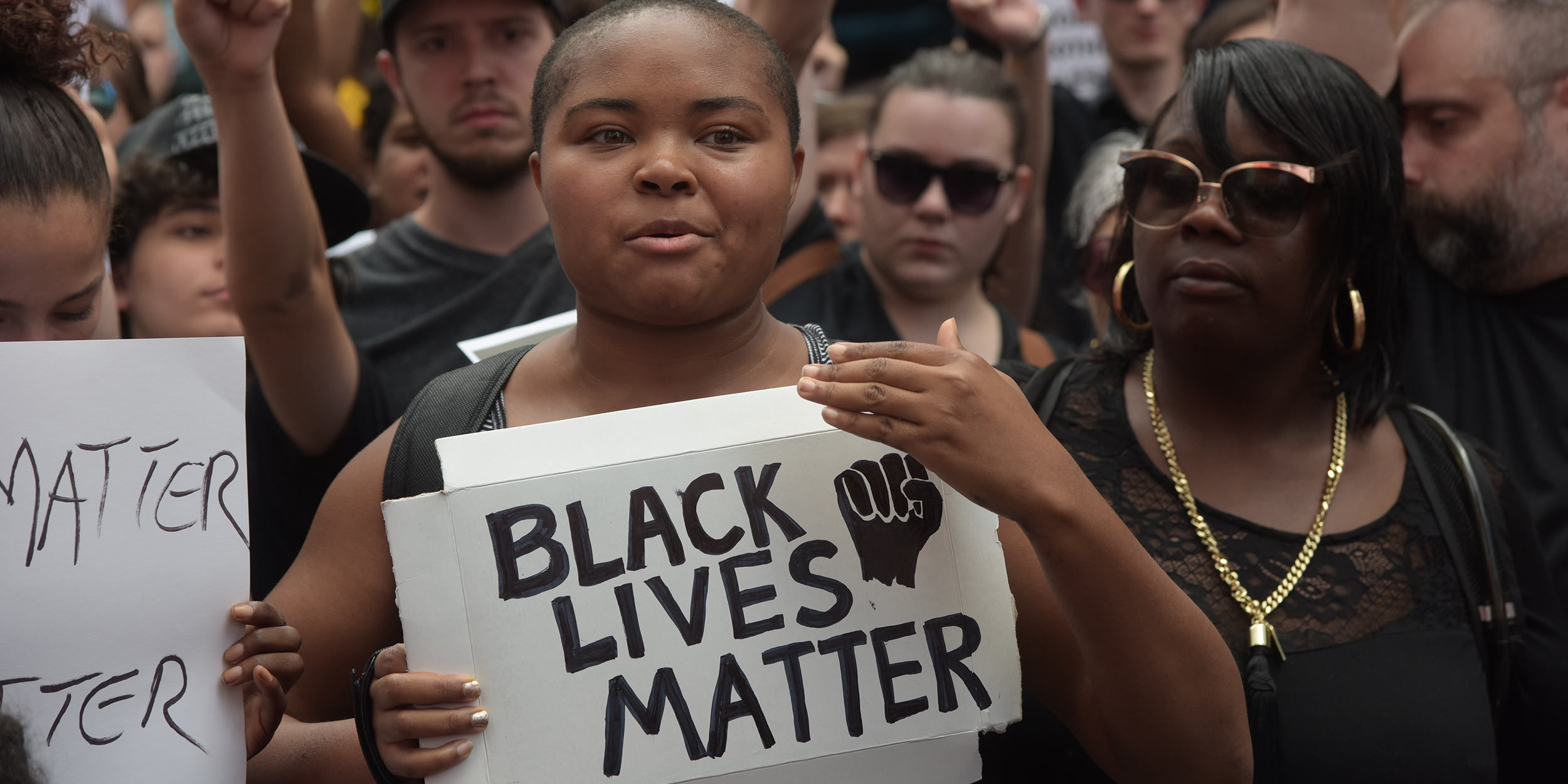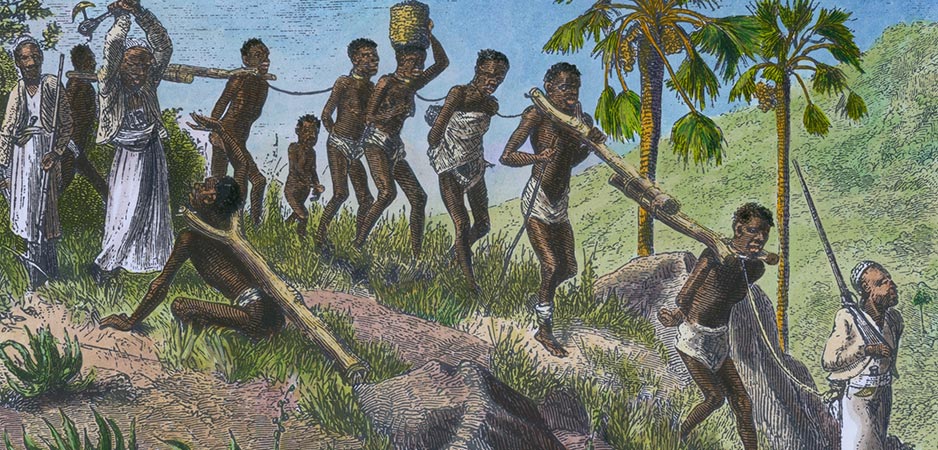The legacy of the transatlantic slave trade still lives on. It began in the 15th century and only ended in the 19th. Even today, the descendants of slaves deal with horrific racism. This led to the rise of the Black Lives Matter movement in the US. Nothing in human history compares with the slave trade’s magnitude, cruelty or sustained brutality.
Slavery was not a new institution in the 15th century. It was invented even before the Middle Ages. In ancient times, the losing side in war was often enslaved and made to pay for its misfortune with servitude. Slavery was common in the Roman world. In the 10th century, the Vikings captured men and women in their raids and then sold them off in the slave markets along the Volga River and the Caspian Sea.
Black Lives Matter Shines the Spotlight on the Shadow of Slavery
Later, the Ottomans acquired European slaves, trained them in the art of war and made them a part of their standing armies. The Ottoman janissaries are a classic example. Some of the slaves rose to become kings and ruled as Mamluks in Egypt and India. In Africa, a large number of slaves were imported into Iraq from Zanzibar in the 9th century to clear the local swamps. These were called the Zanj, which derives from zanjir, a Farsi word that means an iron shackle or chain.
Yet it is important to remember that slavery in ancient and medieval societies was appreciably different from the type that Europeans introduced into Africa. In earlier societies, the slave was held in servitude for a limited time for specific reasons, and the color of the skin was not as big a factor as to whether a person did or did not become a slave. In most cases, the slave had some rights that the master had to respect. In ancient Egypt, Greece and Rome, there were clearly defined codes of conduct governing the relationship between the slaves and their masters. The main point is simple: Slaves of the ancient world were treated with some humanity.
The distinguishing feature of the modern transatlantic slave trade is its total dehumanization of the slave. This continued for four centuries and paved the way for the colonization of Africa. Africans were considered no better than cattle or chattel who could be bought and sold in the market. Many Christian churches played a grim role in creating this narrative of a sub-human sub-Saharan Africa. Many European thinkers created an elaborate ideology of racial superiority in the 17th and 18th centuries. They forged the myth of a people with no history and culture.
What Kicked Off Modern Slavery?
Early in the 15th century, Europe began to recover from the wounds of the Middle Ages and the Crusades. European skill in ship-building had improved and the continent was searching for sources of food supply. Europe wanted to feed its hungry population, earn fortunes through trade and conquer new worlds. Unsurprisingly, Europeans began to venture beyond their shores. Before the 15th century, Europeans had not embarked upon worldwide exploration. Their ships were small, unsuitable and unsafe for long sea journeys. They were powered by oars and crude sails. Cartography was primitive and so were navigating instruments, making sailing on the wide-open ocean suicidal. Most Europeans also thought the world was flat and did not want to fall off the edge.

Once Europeans acquired the knowledge and the skill to sail the high seas, they began a process of world domination that arguably still continues to this day. Modern slavery, however, began before Europe took to the high seas. The Portuguese and the Spaniards started closer home. They targeted the Moors, some of whom were of the same race though not the same religion. It began with piracy on the Moroccan coast in 1441, the year Pope Eugene IV declared that not only pagans but also Jews, heretics and schismatics would “go into the eternal fire.” In 1442, the pope later decreed that “capturing the Moors as slaves was a part of the Crusade and whoever sailed south in this pursuit would receive ablution of his sins.” Now, the slave traders had god on their side.
In 1444, the Portuguese Lagos Company was chartered under the patronage of Prince Henry. By 1465, Portugal “was transporting more than a thousand slaves a year from southern Morocco, Mauritania and Sene-Gambia,” writes Nazeer Ahmed. The Portuguese had tasted blood. Now, they advanced relentlessly along the African coast. They traded Andalusian silk, crude arms and horses for gold, ivory and slaves. They built ships along the coast to further their domination and trade. By 1490, the Portuguese were shipping more than 3,000 slaves a year from Africa.
Until then, there was nothing terribly unusual about this slave trade. It fit an old pattern. Slaves from Europe had been sold in Egypt, Central Asia and even faraway India, while slaves from sub-Saharan Africa had been sold in North Africa, Spain and India. In fact, the slave trade was declining by 1500. The European market was saturated. By the early 16th century, Lisbon alone had 10,000 African slaves, 10% of its population. There was no space for any more slaves.
Something fundamental had changed though. Generations of Americans have been taught that in “1492, Christopher Columbus sailed the ocean blue.” Indeed, thanks to Columbus, Europeans had discovered a brave new world. A small trade in ivory, gold and slaves was about to be transformed into an intricate global web of trade, piracy and politics. In 1497, Europeans landed on the island of Hispaniola in modern-day Haiti, and by 1517, they were on the American mainland. They came not only with guns, canons, lances, swords and horses, but also measles, smallpox, influenza and the bubonic plague.
Recent studies indicate as many as 56 million people died by the beginning of the 1600s. To put this in perspective, this number comprised 90% of the pre-Columbian indigenous population and 10% of the then-global population. This phenomenon has been termed the “Great Dying” and is the largest human mortality event in terms of percentage in all of history.
Initially, the Spanish looted Mayan gold. Then, they enslaved indigenous people and made them work in silver mines. Soon, they discovered there were greater fortunes to be made through plantations. The discovery of the New World had led to the greatest agricultural exchange in history. Crops like potatoes, tomatoes, corn and chilies traveled east, while sugar, cotton and wheat traveled west. Soon, the Spanish and the Portuguese discovered that sugar, a crop first grown in India, grew wonderfully well in Cuban and Brazilian climes.

Until the 16th century, sugar was a luxury good. It made its way from India through Muslim and Venetian merchants to the tables of the rich and mighty. Now, there was a killing to be made by growing it in the New World. The indigenous population was unsuited for this sort of labor and was dying off anyway. So, plantations needed labor. Indentured labor from Europe proved insufficient. African slave labor was ideal because plantation owners did not have to pay them wages and Africans were immune to Old World diseases.
In 1515, the first shipload of sugar arrived in Spain from Cuba. Since Native Americans did not quite survive European diseases, plantations needed to import labor. So, in 1518, the first shipload of slaves arrived in Cuba from West Africa. On the way to Africa, European ships carried goods like brandy, rum and guns. The infamous triangular slave trade was born. In the late 18th and early 19th century, this trade really took off. The Oxford Encyclopedia of Economic History states that the population of slaves in Cuba shot up from 39,000 in 1773 to over 400,000 in the 1840s. As industrialization took off, “the Cuban sugar industry became the most technologically advanced in the world, utilizing narrow-gauged railroads, steam-driven mills, and centrifuges to produce approximately one-third of the world’s sugar.”
The Portuguese emulated the Spanish in Portugal. In North America, tobacco and cotton plantations appeared. All of these were worked by slaves. The Europeans pursued a policy of ethnic cleansing in the Americas and of enslaving in Africa to make their fortunes and give birth to the modern international transatlantic capitalist system.
Triangular Trade, Joint-Stock Company, Race and Family
The processing of sugar yields molasses as a byproduct. Fermented molasses can be made into rum. Soon, not only sugar but also molasses made their way to rum distilleries that sprang up in England, Holland and France. Much of the rum was consumed in Europe, but some of it found its way to West Africa. European merchants started paying for the slaves with rum, guns, horses, cheap industrial products and even fine muslin cloths from India. Guns were in demand by the African slave agents. They made hunting down slaves much easier. Rum, guns and slaves destabilized West Africa. They enabled men to get drunk, dehumanize and kill each other. These were negative externalities of an enormously profitable sugar, rum and slave trade. In the process, Europe and America grew rich while Africa was bled dry.
The story of the African slave trade is essentially the story of the second rise of Europe. After the collapse of the Roman Empire in the 5th century, the Catholic Church culturally unified Europe but the continent retreated inward. The Crusades focused on recovering former Roman territory and ultimately failed. The rise of Islam closed the doors to the Middle East by the 15th century. Europe began a new start by expelling the Moors from Spain and expanding to the New World. They found new markets, materials, manpower, land and fortunes.
The slave trade was no business for the common man. It required enormous capital. Ships had to be built, soldiers hired, fortifications erected and depots maintained in distant lands. Initially, only the kings, noblemen and rich merchants could supply this capital. Portugal wanted to keep a monopoly on this trade. Therefore, it sought justification for its slave-trading position as well as its early discoveries through Papal Bulls. However, the lure of profits was too great to keep out interlopers. Dutch, English and French pirates started preying on Portuguese shipping in the 16th century, with rich merchants in London, Liverpool, Paris and Amsterdam financing their expeditions. On occasions, even their monarchs participated.

At some point, the Dutch engineered a clever revolution. They became the first Europeans to open up expensive international trade for broader participation. They came up with the ingenious idea of a joint-stock company, arguably the single most important development of the 17th century. Following their suit, the English and the French set up joint-stock companies too, transforming trade, business and eventually the entire global economy.
Eventually, British companies backed by the Royal Navy took pole position in the global race for trade, fortune, power and empire. It all began with initial raids on Spanish shipping, which had yielded valuable silver that helped prop up the English currency. Indeed, much of the rivalry between the European powers in the 16th and 17th centuries was for gold and silver, the then-international standards of exchange. This was the era of mercantilism where every country tried to have a positive balance of trade. Commodities were exported in return for gold and silver. Exports increased the supply of precious metals, which backed up the currency of a state. Imports had the opposite effect because they led to the drain of gold and silver.
Spain had grown rich and powerful on the supply of Mexican silver, while England had lost much of its silver to imports from other countries such as Morocco and Holland. When Elizabeth I ascended the throne in 1558, the English pound had lost much of its value. Elizabethan pirates such as Sir Francis Drake and Sir Walter Raleigh saved the day for England and laid the ground for its prosperity. Their successors in the form of joint-stock companies made Britain richer than its wildest dreams.
In the era of joint-stock companies, the transatlantic slave trade exploded. The United Kingdom’s National Archives tell us that “Britain transported 3.1 million Africans (of whom 2.7 million arrived) to the British colonies in the Caribbean, North and South America and to other countries” between 1640 and 1807. An estimated 7 million slaves were transported from Africa to America in the 18th century. This figure for the period between the 16th to the 19th century is estimated at 10 to 12 million.
Such was the madness of the time that a major argument raged among the slave traders. For a hundred years, they argued about the pros and cons of a tight pack and a loose pack. When the slaves were tightly packed on the ship, more slaves could be taken to the New World but more died on board. In a loose pack, more survived the journey because slaves had more breathing space.
Eventually, the Industrial Revolution lowered the demand for slaves. Machine labor became cheaper than human labor, including slave labor. Transporting and feeding slaves cost money. Besides, public opinion started to turn against the institution of slavery by the end of the 18th century. By 1807, Britain outlawed the international slave trade and the Royal Navy started blocking slave ships. Other European countries followed suit. In the New World, slavery continued. There were many competing systems of slavery here.

In South America and in the West Indies, the slave master did not outlaw the African drum, African ornamentations, African religion or other things dear to the Africans that they had often carried over from their ancestral home. This permitted a form of cultural continuity among the slaves in the West Indies, Cuba and South America. Here, plantation owners would buy a shipload or half a shipload of slaves. These slaves usually came from the same areas in Africa and spoke the same language. They retained a sense of community and a certain same basic culture. On the whole, families were kept together. If a slave or an island was sold to a plantation owner at the other end of the island, he could still walk to see the relatives.
In the United States, plantation owners were determined to destroy every element of slave culture. The system was deeply cruel. No other system did anything to demean and destroy the personality of the slave than the American one. Plantation owners ruthlessly sold family members in the free market, ensuring that relatives increasingly lived away from each other. The American slave system operated almost like the American brokerage system.
If a person bought 20 slaves at the beginning of the week, he would, if the price was right, sell 10. These men could then be resold within a few days. The family, the most meaningful and valuable thing in African life, was systematically and deliberately destroyed. Conditions in South America were far from humane, but slaves managed to stay in their family groups and, therefore, preserved some of their cultural continuity. Their lot was still miserable, though, and slavery was tragic for all Africans in all of the Americas.
To justify their barbarity to Africans at home, Europeans needed an ideology. Enslaving human beings is upsetting, but making animals work for human benefit is eminently justifiable. Thus was born the monster of modern racism and the elaborate fiction of the civilizing mission or what Rudyard Kipling called “the White Man’s Burden.” Any visit to a slave fort in Africa shows how this civilizing mission was fundamentally uncivilized and inhuman. In Elmina Castle in modern-day Ghana, slaves were chained, confined to dungeons with no toilets, branded and sent through the “Door of No Return” to the New World. Conditions on slave ships and plantations were horrific. Slaves were beaten, tortured, raped and often worked to death.
Instead of inspiring an exchange and amalgam of cultures, Christopher Columbus set in motion a tragic clash of cultures that has not ended to this day. The Black Lives Matter movement is in no small part due to his toxic legacy in the New World. It is underpinned by a terrible European idea that the white race was superior and the only one that produced anything worthy of being called a culture.
The views expressed in this article are the author’s own and do not necessarily reflect Fair Observer’s editorial policy.
Support Fair Observer
We rely on your support for our independence, diversity and quality.
For more than 10 years, Fair Observer has been free, fair and independent. No billionaire owns us, no advertisers control us. We are a reader-supported nonprofit. Unlike many other publications, we keep our content free for readers regardless of where they live or whether they can afford to pay. We have no paywalls and no ads.
In the post-truth era of fake news, echo chambers and filter bubbles, we publish a plurality of perspectives from around the world. Anyone can publish with us, but everyone goes through a rigorous editorial process. So, you get fact-checked, well-reasoned content instead of noise.
We publish 2,500+ voices from 90+ countries. We also conduct education and training programs
on subjects ranging from digital media and journalism to writing and critical thinking. This
doesn’t come cheap. Servers, editors, trainers and web developers cost
money.
Please consider supporting us on a regular basis as a recurring donor or a
sustaining member.
Will you support FO’s journalism?
We rely on your support for our independence, diversity and quality.





